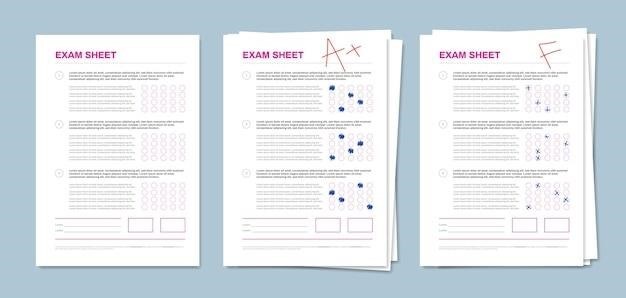nclex test taking strategies pdf
Understanding the NCLEX-RN Exam
The NCLEX-RN, a standardized computer-based test, assesses readiness for entry-level nursing practice․ It’s crucial to understand the exam format, question types, and content areas covered in the NCLEX-RN test plan to prepare effectively for success․ A strong understanding of the exam’s structure is foundational to effective test preparation․
Exam Format and Structure
The NCLEX-RN exam is a computer adaptive test (CAT), meaning the difficulty of subsequent questions adjusts based on your performance․ It’s administered on a computer and doesn’t have a fixed number of questions; the test concludes when the computer algorithm determines sufficient data to confidently assess your competency․ The questions are predominantly multiple-choice, but can include other formats like multiple-response, fill-in-the-blank, and ordered response․ Each question presents a clinical scenario requiring you to analyze information, apply nursing knowledge, and select the best course of action․ Time management is critical, as the test can take several hours to complete․ Understanding this adaptive nature and the various question formats is key to effective preparation and efficient time management during the exam․ Familiarize yourself with the different question types to avoid surprises on test day․ Successful candidates often report that practice tests mimicking the adaptive nature of the exam are particularly beneficial․
Question Types and Content Areas
The NCLEX-RN exam utilizes a variety of question types to assess your nursing knowledge and critical thinking skills․ These include multiple-choice questions, where you select the single best answer from several options; multiple-response questions, requiring the selection of multiple correct answers; fill-in-the-blank questions; and ordered response questions, demanding you arrange options in a specific sequence․ The content areas covered encompass a broad spectrum of nursing practice, including medical-surgical nursing, maternity nursing, pediatric nursing, psychiatric nursing, and community health nursing․ Each question is designed to evaluate your ability to apply nursing principles, prioritize patient care, and make sound clinical judgments․ The emphasis is on your ability to use critical thinking to analyze patient situations and identify the most appropriate interventions․ Thorough preparation across all content areas, focusing on applying knowledge to scenarios, is crucial for success․
NCLEX-RN Test Plan Overview
The NCLEX-RN test plan provides a detailed outline of the content and skills assessed on the examination․ It’s a crucial resource for guiding your study efforts and ensuring comprehensive preparation․ The test plan is organized into client needs categories, reflecting the multifaceted nature of nursing practice․ These categories include safe and effective care environment, health promotion and maintenance, psychosocial integrity, physiological integrity, and the overarching theme of nursing process․ Each category contains specific subtopics and client needs, enabling focused study․ Familiarizing yourself with the weighting of each category within the exam helps prioritize your study time․ The test plan also outlines the cognitive levels tested, including remembering, understanding, applying, analyzing, and evaluating․ Understanding these cognitive levels allows for targeted practice in applying nursing knowledge to diverse clinical scenarios․ A thorough review of the NCLEX-RN test plan is essential for effective and efficient exam preparation․

Effective NCLEX-RN Test-Taking Strategies
Mastering effective test-taking strategies is paramount for NCLEX-RN success․ These strategies enhance performance by optimizing time management, improving prioritization and delegation skills, and refining the ability to eliminate incorrect answer choices․ Strategic approaches significantly increase the likelihood of a passing score․
Time Management Techniques
Effective time management is crucial for success on the NCLEX-RN․ The exam is lengthy, and pacing yourself is essential to avoid rushing through questions or running out of time․ Before starting, create a rough schedule, allocating time per question or section based on your comfort level and the number of questions․ Use a timer to track your progress and adjust your pace accordingly․ If you encounter a particularly challenging question, don’t dwell on it for too long․ Mark it for review and move on to ensure you have ample time for other questions․ After completing the exam, review any marked questions, but manage your time to avoid re-spending excessive time on any single question․ Regular practice exams will help you refine your time management skills and improve efficiency․
Prioritization and Delegation Strategies
Mastering prioritization and delegation is paramount for success on the NCLEX-RN․ Many questions assess your ability to identify the most critical patient need and assign tasks appropriately․ Utilize frameworks like Maslow’s Hierarchy of Needs or ABCs (Airway, Breathing, Circulation) to prioritize patient care․ Remember, life-threatening conditions always take precedence․ When delegating tasks, consider the scope of practice for various healthcare professionals (LPNs, CNAs)․ Ensure tasks are delegated to qualified individuals who possess the necessary skills and training․ Always prioritize tasks that directly impact patient safety and well-being․ Practice applying these strategies to various scenarios to build proficiency․ This will enhance your ability to quickly and efficiently assess situations and make informed decisions under pressure․
Eliminating Incorrect Answer Choices
Effective elimination of incorrect answer choices significantly improves your chances of selecting the correct response on the NCLEX-RN․ Start by identifying obviously incorrect options – those that are unsafe, inappropriate, or contradict established nursing principles․ Look for keywords or phrases that align with the question’s focus․ Consider the overall context of the question and eliminate answers that are outside the scope of the scenario․ If you’re unsure, focus on the most likely option based on your knowledge․ Remember, some answers might be partially correct but not entirely address the question․ Choose the answer that best and most completely answers the question posed․ This strategic approach reduces the number of choices and increases the probability of selecting the correct answer, improving your overall score․

Utilizing NCLEX-RN Practice Resources
Maximize your NCLEX-RN preparation by using diverse practice resources․ These include practice questions with rationales, full-length practice exams, and targeted review materials for weak areas․ This multifaceted approach enhances comprehension and boosts confidence․
Practice Questions and Rationale
Engaging with numerous practice questions is a cornerstone of effective NCLEX-RN preparation․ These questions should mimic the style and difficulty of the actual exam․ However, the true value lies not just in answering the questions correctly, but in thoroughly understanding the rationales behind each answer choice․ Analyzing incorrect options helps identify knowledge gaps and reinforces correct reasoning․ This process strengthens critical thinking skills, essential for navigating the complexities of NCLEX-RN questions․ Focus on understanding the underlying principles and nursing concepts, rather than simply memorizing answers․ Utilize online resources, review books, and practice question banks to gain exposure to a wide range of question types․ Regularly review your performance on practice questions, pinpointing areas requiring further study․ This iterative process of practice, analysis, and targeted review is key to exam success․
Full-Length Practice Exams
Taking full-length practice exams is an invaluable step in preparing for the NCLEX-RN․ These simulated exams provide a realistic testing experience, allowing you to practice time management under pressure․ Full-length exams help you identify your strengths and weaknesses, revealing areas needing further study․ They also acclimate you to the exam’s length and format, reducing anxiety on test day․ Choose practice exams that closely mirror the NCLEX-RN in question style, content, and difficulty level․ Analyze your performance on each exam, focusing on both correct and incorrect answers․ Identify recurring patterns of mistakes and address them through focused study․ Remember that consistent practice with full-length exams is more beneficial than sporadically completing shorter quizzes․ Use these exams as a tool for improvement, not solely for scoring purposes․
Reviewing Weak Areas
After completing practice exams or identifying challenging concepts during your studies, dedicate focused time to reviewing your weak areas․ Don’t simply reread material; actively engage with the concepts․ Utilize different learning methods, such as creating flashcards, teaching the material to someone else, or working through additional practice questions specifically targeting your weaknesses․ Seek clarification on concepts you don’t understand․ Consult textbooks, online resources, or seek help from instructors or study partners․ Focus on understanding the underlying principles rather than memorizing isolated facts․ Develop a deeper understanding of the rationale behind correct and incorrect answers․ Consistent review and reinforcement of challenging areas is crucial for long-term retention and improved performance․ This focused approach ensures you address knowledge gaps effectively․
Advanced NCLEX-RN Preparation
Elevate your preparation beyond basic strategies․ Refine critical thinking skills, manage test anxiety effectively, and cultivate a positive mindset for optimal exam performance․ A well-rounded approach maximizes your chances of success․
Critical Thinking and Rewording Strategies
Sharpen your critical thinking skills to dissect complex NCLEX-RN questions․ Don’t just read the question; actively analyze it․ Identify keywords, understand the scenario, and pinpoint the core problem․ Then, reword the question in your own terms to clarify the underlying issue․ This helps eliminate ambiguity and reduces the impact of confusing wording․ Practice identifying assumptions and biases within questions to avoid falling for distractor answers․ Look for underlying patterns in the questions and answers․ This approach fosters deeper understanding, improves problem-solving abilities, and enhances your ability to identify the most appropriate nursing intervention․ By actively engaging with the question’s nuances and rephrasing the core concept, you’ll be better equipped to choose the correct answer․ Remember that the NCLEX-RN isn’t just about recalling facts; it’s about applying nursing knowledge and critical thinking to real-world scenarios․ Focus on the process, not just the answer․ This advanced approach builds confidence and improves your ability to handle any question type effectively․ Develop a systematic method for analyzing questions that promotes focused attention on the key elements․
Managing Test Anxiety
The NCLEX-RN exam is a significant milestone, and anxiety is a common experience․ To manage test anxiety effectively, develop a robust study plan that allows for consistent, paced learning․ Avoid cramming; instead, focus on consistent review and practice․ Incorporate relaxation techniques into your daily routine, such as deep breathing exercises, meditation, or yoga․ These can help calm your nerves and center your focus before and during the exam․ On the day of the exam, ensure you get enough sleep and eat a nutritious meal to maintain energy levels․ Remember to arrive early to allow ample time to settle in and minimize rushed feelings․ If anxiety persists, consider seeking support from a counselor or mentor․ They can provide coping strategies and tools to manage your stress levels effectively․ Visualize success; positive self-talk is incredibly powerful․ Remind yourself of your preparation and capabilities․ Remember to take breaks during your study sessions to avoid burnout and maintain focus․ A well-rested and calm mind is better equipped to handle the demands of the NCLEX-RN․ Channel your nervous energy into focused concentration on each question․
Maintaining a Positive Attitude
A positive attitude is crucial for successful NCLEX-RN preparation and performance․ Believe in your abilities and acknowledge your hard work․ Surround yourself with supportive individuals who encourage and uplift you․ Limit exposure to negativity and self-doubt․ Celebrate your accomplishments along the way, no matter how small․ Acknowledge the challenges, but focus on solutions and progress․ Maintain a healthy lifestyle that supports your mental and physical well-being; Prioritize sufficient sleep, nutritious meals, and regular exercise․ These contribute significantly to reducing stress and boosting your overall mood․ Remember that setbacks are opportunities for growth; learn from mistakes and adjust your approach accordingly․ Visualize success and focus on your goals․ Positive self-talk reinforces confidence and resilience․ Avoid comparing yourself to others; concentrate on your own journey and pace․ Practice self-compassion; be kind to yourself and acknowledge your efforts․ Maintain a balanced perspective; the NCLEX-RN is a significant step, but it doesn’t define your worth or capabilities as a nurse․
